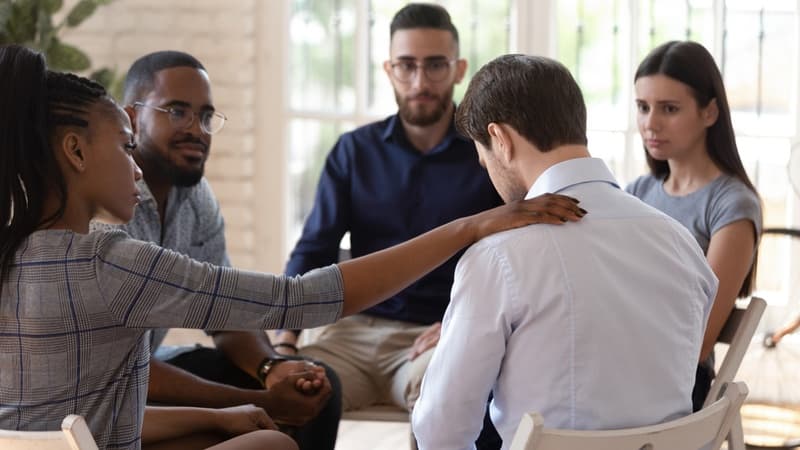Amaha / / / How to Get Over My Substance Abuse Problem
ARTICLE | 5 MINS READ
How to Get Over My Substance Abuse Problem
Published on
10th Mar 2025

It's a hard thing to be in recovery from substance abuse. You may have been addicted to substances for years, and the thought of giving them up can feel like you're losing your life. You don't want to feel this way anymore - and we can help you work through your recovery.
Let's talk about what it means to recover from substance abuse. That might sound like an easy question... but the answer has many layers to it.
Recovery is a period where an individual with a substance abuse problem is trying to live a complete life, without the disruption brought by the disorder. Recovery is about a lot more than just stopping using substances for good; it's about finding a way back into your life that involves coping with your problems in an adaptive manner without using any substances. It is about finding ways to cope with stress, triggers and setbacks in a way that won't cripple you as badly as they used to before treatment started working for you.
Understand The Problem
Understanding the problem is crucial to overcoming substance abuse. The first step in getting over it is understanding what that means.
What does "understanding" mean? It means you're going to have to learn about substance abuse - how it affects people and whether you’re addicted or not. You'll want to know what causes it, why it happens and how you can help yourself if you get addicted.
Understanding also means figuring out the signs of substance abuse and knowing when you have been using substances excessively for a long time. It is about getting better and living a better life, physically and mentally.
Learn The Triggers
Stress is one of the significant causes of substance abuse. A large majority of people with substance abuse disorder tend to start using the substance to cope with stress. However, it is important to remember that substances can only help reduce stress for a very brief moment. You can learn how to identify triggers and deal with them adaptively. Here are some common triggers that people experience:
Feeling overwhelmed by work or school
Not being able to control your emotions at times like during an argument with your partner, friend or family member and feeling that you cannot do anything about it anymore (this is called “coping”)
Having financial problems due to unemployment or other reasons like breaking up with your partner.
Identifying your trigger can be a huge step towards recovery. Once you learn what your triggers are, you can prepare how to deal with the stress in a productive way without resorting to substances. If you’re unable to find out the exact trigger, your psychiatrist or therapist will be able to help.
Set Up The Environment
Your environment is a very crucial aspect of your recovery. Research shows that your environment can also be the cause of your substance abuse problem. So, setting up your environment for recovery can be extremely beneficial for you. Here are some simple things you can do to set up your environment:
Avoid places where you used to engage in substances and people who used to do it with you, or who encouraged you to do it.
Avoid places where alcohol was consumed often (for example, at parties).
Make sure that when you are with your friends and family they know how much effort it takes for you. Ensure that they are on board with your recovery and support you in this journey.
Talk To A Mental Health Expert
If you're struggling with substance abuse, help is available. The first thing that you should do is talk to a mental health professional who can help guide you through the process of getting over your addiction and learning how to live without it. You might want to consider talking with:
A Psychiatrist: A psychiatrist is a doctor who specialises in treating mental health conditions. A trained and qualified psychiatrist will be able to give you a proper diagnosis. They can also help you manage and improve your physical health and decrease your dependency on the substance, while also helping you deal with withdrawal symptoms through medication.
A Therapist: A therapist is an expert in treating mental health conditions through talk therapy. A therapist will help you unravel the real cause of your substance abuse disorder, and help you identify ways in which you can cope with them.
Take help from friends and family
One of the best ways to get over your substance abuse problem is by taking help from friends and family. They can be a huge support system for you, especially when it comes to understanding where you are coming from, what's going on with you, and what you need. They will also be able to help with practical things like transportation, food and money (if required). And if they're willing to get involved in treatment programs with you as well, then that's great!
If you’re struggling with substance abuse and need help, do not hesitate to seek help. There are resources out there that can help you get better, and enter the road to recovery.